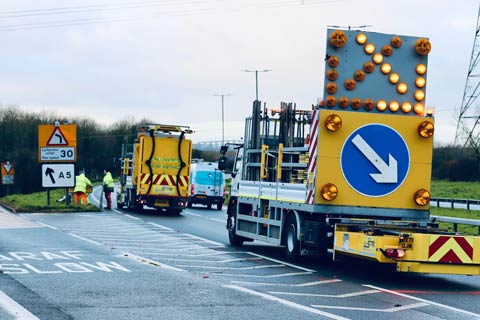10th April 2017 | Hudson Contract
Announcing the death of the annual tax return . . . but that’s where the good news ends
Did you realise that HMRC are determined to move the tax system, and every taxpayer, into the digital age – kicking and screaming, if necessary? The Revenue is looking forward to the death of the traditional end-of-year tax return, replacing it with real time digital tax accounts for businesses and individuals.
A one-year pilot project is already underway, with participants signing up to go paperless and then using special software to record and send HMRC summary reports of their business income and expenses direct from their digital records at least four times a year.
By this time next year – according to the latest implementation timetable – any firm or sole trader whose annual turnover is above the £85,000 VAT threshold will be obliged to keep track of all their tax affairs digitally.
The impact on an estimated 3.1 million small businesses and the self-employed will be: -
- Spreadsheets used will need to meet HMRC’s requirements, which is likely to involve combining them with data transfer software
- Updates will be required at least four times a year, sending HMRC details of your income, expenses and profit
- Free software will be available for those with straightforward affairs
- Invoices and receipts can be stored digitally or retained as hard copies
- Year-end activities will need to be completed and sent either within ten months after the last day of the period of account or 31st January, whichever is sooner.
Businesses and the self-employed whose turnover is at least £10,000 will most likely be obliged to go digital the year after, in April 2019, although the government is still taking into account feedback on the proposals, and will announce firm plans and legislation later this year.
What HMRC wants to happen:
- April 2018: All businesses with a turnover over £85,000 to report their trading profits quarterly rather than annually, as is now the case
- Those who run their own spreadsheets rather than use professional accounting software, will need to comply with HMRC’s data requirements
What’s actually going to happen?
The wholescale turmoil the new regime would usher in – a combination of the desired swift start date, taxpayers’ ability to understand what’s required of them, plus vital data security issues that must be overcome – are all valid reasons to delay or to go back to the drawing board. Additionally, the timetabling and demands of the proposals have already drawn fierce criticism from a wealth of groups and organisations that represent small businesses and the self-employed.
As always Hudson Contract is doing its utmost to stay ahead of the curve. So when and if freelance builders are affected, we will be working with our partners to offer simple, risk-free solutions that facilitate full compliance.

To speak to one of our team, call us on 01262 401040
Or request a callback and one of our team will be in touch at a time that suits you.
Request a callback
Please select your role and fill in your details and we'll get you the right person to call you:



